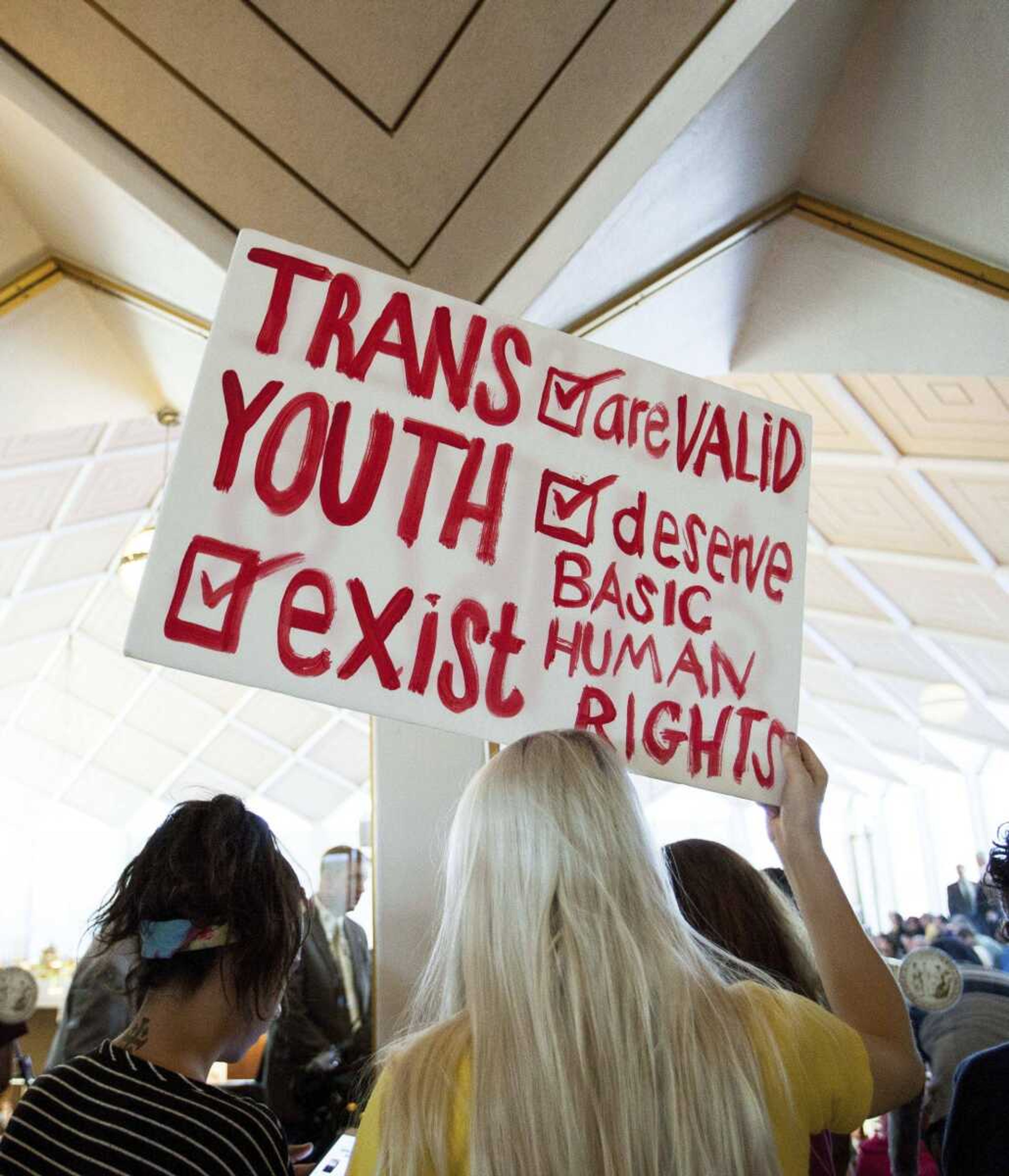North Carolina fails to repeal LGBT law as culture wars rage
RALEIGH, N.C. -- Repealing North Carolina's law limiting LGBT protections at the close of a bitter election year was supposed to heal blows to the economy and perhaps open a truce in the culture wars in at least one corner of the divided United States...
RALEIGH, N.C. -- Repealing North Carolina's law limiting LGBT protections at the close of a bitter election year was supposed to heal blows to the economy and perhaps open a truce in the culture wars in at least one corner of the divided United States.
The failure of state lawmakers to follow through instead shows how much faith each side has lost in the other as Americans segregate themselves into communities of us and them, defined by legislative districts that make compromise unlikely.
The deal supposedly was reached with input from top politicians and industry leaders: Charlotte agreed to eliminate its anti-discrimination ordinance on the condition state lawmakers then repeal the legislation known as House Bill 2, which had been a response to Charlotte's action.
But bipartisan efforts to return the city and state to a more harmonious past fell apart amid mutual distrust, and neither side seemed to worry about retribution in the next election.
With GOP map-drawers drawing most legislative districts to be uncompetitively red or blue, politicians see little downside to avoiding a negotiated middle-ground.
And since the day Republicans passed and signed it into law in March, HB2 has reflected these broad divisions in society.
The failed repeal shows the same polarization, said David Lublin, a Southern politics expert in American University's School of Public Affairs.
North Carolina had been "seen as the forefront of the new South," focusing on education and economic development, and wasn't "viewed as crazy-right wing or crazy-left wing," Lublin said.
Keeping the law in effect, he said, "reverses that impression."
It was always more than just a "bathroom bill." Republican lawmakers commanding veto-proof majorities framed HB2 as a rebuke to the values of Charlotte and other urban, white-collar communities where Democrats are clustered and where gay, lesbian, bisexual and transgender people generally find support.
HB2 -- which omits these people from state anti-discrimination protections, bars local governments from protecting them with their own ordinances and orders transgender people to use facilities that match their birth certificates -- created a backlash that has cost the state's economy millions.
Corporations, entertainers and high-profile sporting events backed out to avoid being seen as endorsing discrimination.
Two-thirds of North Carolina voters surveyed in November's Associated Press exit poll said they oppose the law, and even Trump's supporters narrowly trended against it.
IBM executives worry the failure to repeal HB2 is an obstacle to attracting the best employees to its largest North American operation, in Research Triangle Park outside Raleigh, home to an outsized number of college graduates from around the world.
"The state of North Carolina has a tremendous amount to do to recover its reputation as a great place to live, work and do business," IBM chief diversity officer Lindsey-Rae McIntyre said in an interview Thursday.
"Our position is that we will fight this, that we are deeply committed to hiring the very best, diverse talents and that this law and this mindset does nothing to fuel our commitment to hiring that talent."
Connect with the Southeast Missourian Newsroom:
For corrections to this story or other insights for the editor, click here. To submit a letter to the editor, click here. To learn about the Southeast Missourian’s AI Policy, click here.









